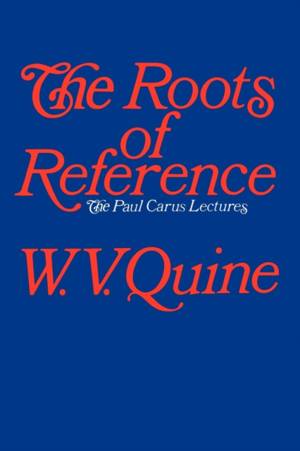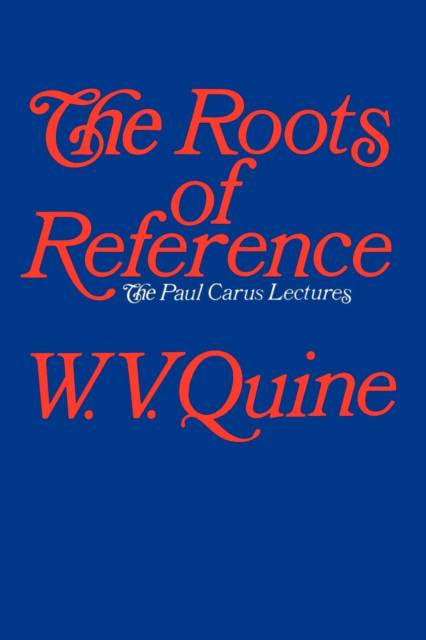
- Retrait gratuit dans votre magasin Club
- 7.000.000 titres dans notre catalogue
- Payer en toute sécurité
- Toujours un magasin près de chez vous
- Retrait gratuit dans votre magasin Club
- 7.000.0000 titres dans notre catalogue
- Payer en toute sécurité
- Toujours un magasin près de chez vous
Description
"Part I is a statement of general psychological presumptions regarding perception and learning. The underlying notions of cause and disposition are examined in a philosophical spirit. In Part II those considerations are brought to bear more particularly on the learning of language.
"Part II comes firmly to grips with the nature of reification and reference. The process is inseparable from language, and unequivocally identifiable only to the degree that the language resembles ours in certain structural respects. Stages of reification are sorted out, rudimentary to full-fledged. The full phase is heralded by the use of the relative clause with its relative pronoun and subsidiary pronouns. It is these pronouns that recur in logical notation as the bound variables of quantification.
"Part III concludes with a conjectural sketch of the development of reification in the race and the individual. Especial attention is directed to the positing of abstract objects: properties, classes, numbers. It is traced in large part to the serendipity of fruitful confusions. Truth, after all, can issue fromfallacious proofs; to condemn the outcome for its fallacious origin is simply to add the genetic fallacy to what had gone before. Let us count our blessings".
Spécifications
Parties prenantes
- Auteur(s) :
- Editeur:
Contenu
- Nombre de pages :
- 168
- Langue:
- Anglais
- Collection :
- Tome:
- n° 14
Caractéristiques
- EAN:
- 9780812691016
- Date de parution :
- 28-09-99
- Format:
- Livre broché
- Format numérique:
- Trade paperback (VS)
- Dimensions :
- 152 mm x 228 mm
- Poids :
- 267 g

Les avis
Nous publions uniquement les avis qui respectent les conditions requises. Consultez nos conditions pour les avis.






